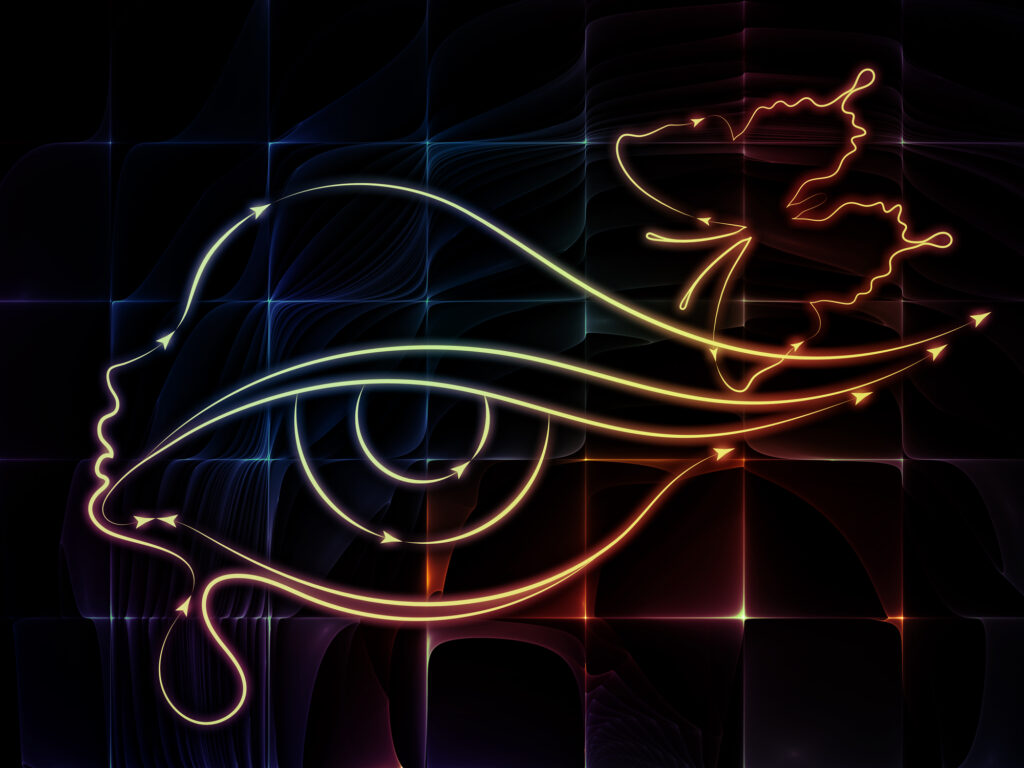Whether you are an individual seeking a personal consultation, or a health care provider looking to work with a medical intuitive on behalf of your patients, there are key guidelines to consider when choosing a medical intuitive practitioner to work with.
Medical intuition is an emerging field in complementary and integrative healthcare. The National Organization for Medical Intuition (NOMI) defines it as “a skill of intuitive observation, evaluation, and assessment of the physical anatomy, physiology, and biofield that can be practiced separately from any intervention, treatment, or healing service.” The biofield, which includes the chakra system and the aura, is defined as a field of energy and information that surrounds, permeates, and influences the human body (Rubik, Muehsam, Hammerschlag, & Jain, 2015). Medical intuition is designed to provide a unique adjunct and support to all integrative healthcare practices, as well as an insightful opportunity for patients and clients.
Medical intuition is intended to:
- Optimize wellness assessments and evaluations.
- Reduce costs with suggestions for integrative care options.
- Increase patient compliance by providing insight and awareness.
- Promote effective preventive care.
- Discover underlying causes of physical, emotional, mental, and energetic issues.
What to Expect in a Medical Intuitive Session
A hallmark of the skill is the ability of a medical intuitive practitioner to deliver an accurate intuitive assessment of a client’s anatomy and physiology without any prior knowledge of the client’s health issues or medical history.
Medical intuitives may use a variety of intuitive senses, including intuitive seeing, feeling, hearing, and knowing. They may use only one intuitive sense, or a combination of several at a time. Sessions can take place in person or remotely via telephone or internet. A clinician may also choose to consult with a medical intuitive on behalf of their patient, without the patient present.
The biofield can provide vital insights that may pertain to the emotional, mental, and spiritual aspects of a health issue. A medical intuitive can detect energetic disturbances in the biofield that may be limiting or blocking the natural flow of energy. Information from a client’s life history may also be discerned, which is intended to help the client understand the deeper meaning of a health imbalance.
Here are some items to look for when choosing a medical intuitive:
- A public presence, such as a website, social media, or marketing materials, identifying themselves as a professional medical intuitive with a fee-based practice.
- Information about the medical intuitive’s training, credentials, or certifications.
- A biography or curriculum vitae that includes length of practice, professional affiliations, and references.
- Clearly stated fees, policies, and descriptions of services.
- A disclaimer stating that medical intuition is not a licensed healthcare practice and should not be used as a substitute or replacement for a licensed provider’s services.
- An informed consent that requires the client’s signature before the session begins.
- Current practitioner insurance and HIPAA compliance for record-keeping.
Ethics for Medical Intuitive Practitioners
According to NOMI, medical intuitives should maintain high ethical standards with the benefit and safety of the client as their primary goal. Knowledge, skill, and technical competence must be evident, and it is noted that honesty, integrity, and compassion are essential to the profession.
A fourteen-point Code of Ethics for the professional practice of medical intuition is listed below and available on the NOMI website. This includes adhering to the medical intuitive’s legally defined scope of practice, and not interfering with medical advice or treatment plans provided by a client’s licensed healthcare practitioner.
There are spiritual ethics to consider as well. As medical intuition accesses broader levels of consciousness, medical intuitives must be careful not to blur ethical lines. They must avoid projecting their own beliefs or biases onto a client, or overstepping the power differential between them. It is crucial that all medical intuitive practitioners foster a respectful atmosphere that honors the client’s free will.
NOMI’s Code of Ethics is intended to assist medical intuitives in creating and maintaining a safe and professional practice.
A professional medical intuitive practitioner:
- Follows high ethical standards with the primary tenet to do no harm.
- Works within their legally defined scope of practice and adheres to the principles of their professional licensures and certifications.
- Abides by the applicable local, state, and national laws, regulations, and rules that govern the delivery of their services to the public.
- Does not discriminate based on religion, race, sexual orientation, age, disability or health.
- Does not diagnose, prescribe or provide a prognosis unless within their scope of practice and professional licensure under applicable laws.
- Does not interfere with the clients’ and patients’ medical advice or treatment plans provided by their licensed healthcare providers.
- Does not offer assurances of clinical improvement, cure or recovery.
- Does not make misleading, false, deceptive or fraudulent statements when advertising their services to the public.
- Does not foster or encourage undue financial, emotional or other dependency with clients or patients.
- Respects the fundamental dignity, worth, personal journey and values of all clients and patients.
- Strives to keep current with competency and skills in Medical Intuition.
- Represents their practice fairly, ethically and accurately, including obtaining informed consent from clients and patients, providing clear and accurate information to prospective clients and patients, and maintaining appropriate insurance, record keeping, and policies.
- Maintains clear boundaries and avoids inappropriate relationships with clients and patients.
- Maintains client and patient confidentiality.
Used with permission. https://www.nomimedicalintuition.org/
Author Bio:
Wendie Colter, MCWC, CMIP, is a Master Certified Wellness Coach, Certified Medical Intuitive Practitioner, award-winning author, and founder/CEO of The Practical Path®, Inc. Her accredited certification program, Medical Intuitive Training™, has been pivotal in helping wellness professionals develop and optimize their inherent intuition. She is author of Essentials of Medical Intuition: A Visionary Path to Wellness (Watkins Publishing/Penguin-Random House), a Nautilus Silver Award and International Book Awards winner. Wendie’s groundbreaking research on medical intuition is published in the peer-reviewed Journal of Integrative and Complementary Medicine. She is President of the National Organization for Medical Intuition (NOMI), and serves on the BioEnergy & Health Committee of the Integrative Health Policy Consortium (IHPC). For more information, visit https://thepracticalpath.com
References:
National Organization for Medical Intuition (NOMI), https://www.nomimedicalintuition.org/
Rubik, B., Muehsam, D., Hammerschlag, R., & Jain, S. (2015). Biofield Science and Healing: History, Terminology, and Concepts. Global Advances in Health and Medicine, 4(Suppl), 8–14.
Gentile, M., Barsotti, T., Colter, W. (2022) The Use of Medical Intuition in Healthcare. https://www.nomimedicalintuition.org/research
Colter, W. Essentials of Medical Intuition: A Visionary Path to Wellness. Watkins Publishing, 2022.
Colter, W., & Mills, P. J. Assessing the Accuracy of Medical Intuition: A Subjective and Exploratory Study. J Altern Complement Med 2020;26(12);1130–1135.







